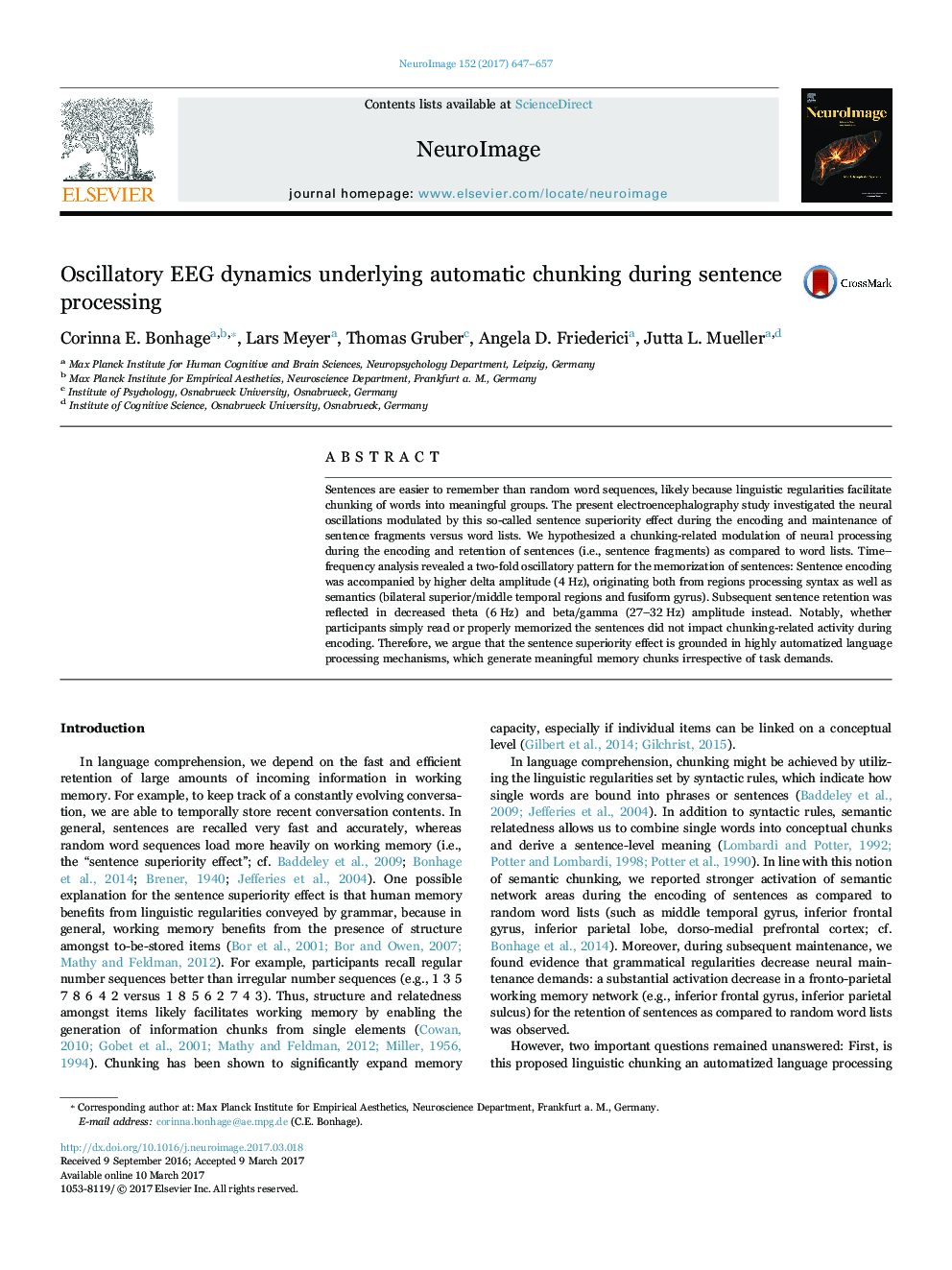| Article ID | Journal | Published Year | Pages | File Type |
|---|---|---|---|---|
| 5631225 | NeuroImage | 2017 | 11 Pages |
â¢Sentences-even parts of sentences-are easier to remember than random word sequences.â¢The memory benefit is grounded in highly automatized language comprehension mechanisms.â¢These comprehension mechanism generate meaningful memory chunks irrespective of task demands.â¢Automatic linguistic chunking is reflected in delta oscillation amplitudes Delta activity originates from temporal brain regions involved in syntactic & semantic processing.
Sentences are easier to remember than random word sequences, likely because linguistic regularities facilitate chunking of words into meaningful groups. The present electroencephalography study investigated the neural oscillations modulated by this so-called sentence superiority effect during the encoding and maintenance of sentence fragments versus word lists. We hypothesized a chunking-related modulation of neural processing during the encoding and retention of sentences (i.e., sentence fragments) as compared to word lists. Time-frequency analysis revealed a two-fold oscillatory pattern for the memorization of sentences: Sentence encoding was accompanied by higher delta amplitude (4Â Hz), originating both from regions processing syntax as well as semantics (bilateral superior/middle temporal regions and fusiform gyrus). Subsequent sentence retention was reflected in decreased theta (6Â Hz) and beta/gamma (27-32Â Hz) amplitude instead. Notably, whether participants simply read or properly memorized the sentences did not impact chunking-related activity during encoding. Therefore, we argue that the sentence superiority effect is grounded in highly automatized language processing mechanisms, which generate meaningful memory chunks irrespective of task demands.
